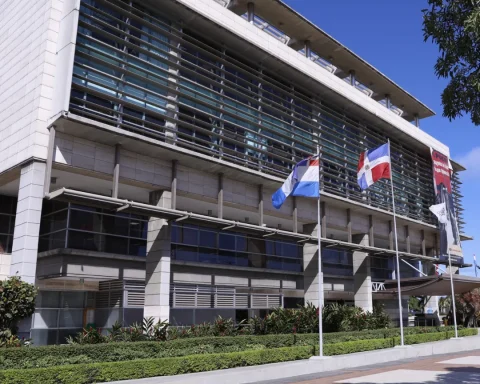L
the mechanisms used in favor of environmental balance changed little during the management of neoliberal governments, which is why non-governmental organizations (NGOs) proliferated. The new environmental proposals of the current government and recent international programs to reduce the emission of the greatest danger to the atmospheric balance (carbon dioxide) are under development and with visible results.
Our responsibility as professionals graduated from Mexican universities – personally from the Faculty of Sciences of the UNAM – is to multiply the calls to the international community so that the commitments already signed, now yes, are carried out. It is time to move faster and gain space for destruction. The steps to finish concretizing the projects in favor of the environment must be viable, continuous and definitive.
Some programs are running successfully. National commitments, such as the rescue of Lake Texcoco, and international ones, such as those signed in various conventions, are also being fulfilled. Regarding multilateral cooperation, the International Whaling Commission, the Commission for the Protection and Conservation of Sea Turtles and the Convention for the Conservation and Development of the Marine Environment of the Greater Caribbean Region were formalized.
In the area of mining, the Mexican company Litio para México was created, whose decree, in article 10, establishes that The exploration, exploitation, benefit and use of lithium are exclusively the responsibility of the State, and will be carried out by the decentralized public body determined by the Federal Executive in terms of the applicable provisions.
. In this way, the energy sovereignty of the nation over lithium and other minerals that are strategic and necessary for the energy transition, technological innovation and national development is guaranteed.
Although the structural reforms of the previous six-year terms have left a sequel of broken ecological niches, polluted waters and permanent rarefaction of the atmosphere, it has been possible to design strategies and tactics for each of the national problems that require urgent environmental recovery.
In this six-year term, of the programs indicated as priorities by the federal government, three are aimed at rescuing environmental balance, which should be endorsed and supported by independent organizations, altruists or NGOs, as they all have the same objective: the optimal exploitation of natural resources and non-profit productivity, according to the declaration of its principles.
But some have become preserves of power that support private companies or openly demonstrate against the federal government trying to obstruct the progress of its plans. Such is the case of the reform to article 105 of the General Law of Ecological Balance and Environmental Protection (LGEEPA) to not allow the change of land use from forestry to agricultural or livestock. This new law guarantees the supply of clean water and atmosphere for current and future generations.
The LGEEPA is also intended to put an end to the controversies between the interests of agricultural companies and the violation of the rights of the local population.
What environmental organization would oppose a program for the improvement and sustainable regulation of forest areas, the promotion of the integral management of productive areas for their conservation, protection and restoration, under a strict plan of work and productive use?
The economic interests that some of the companies defend are the real obstacle to the development of environmental plans that will support thousands of families.
Another example of the inconsistency of some NGOs is the indifference towards the Lake Texcoco project, with already evident results, having returned to the lake –or what was left of it– some bird species that were believed to have disappeared. Territorial, social and economic problems will be solved with the support of local people, state and federal governments.
With this integral recovery design, it is intended to improve the entire natural area, which includes more than 12,300 hectares, which will be used by the inhabitants of the place. The objective is to guarantee an optimal future in such an important natural area for the Valley of Mexico, where the benefit of the various peoples who are settled in this historic space is especially sought.
NGOs have been overwhelmed by reality and diverted from their own goals. They are no longer those activists who challenged the authorities of the previous six-year terms, especially during neoliberal public policies. Although it was not entirely bad for them, since they have lived many years (not all), without justification, of the diversion of economic resources. The result has been the discredit of these organizations.

















